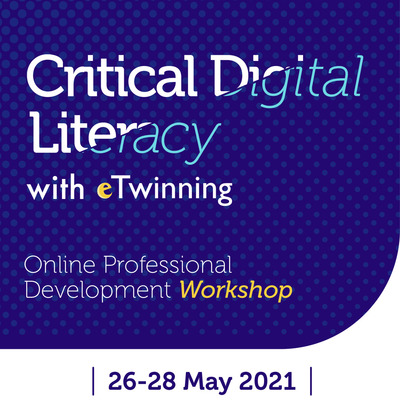
Online Professional Development Workshop 2021: Critical Digital Literacy with eTwinning

The 180 participants began their journey on Wednesday 26th May with the welcoming speech by Ms Antonija Gladovic, who stressed the importance of eTwinning as a community and a platform.
“This community has been especially important during the last 15 months when schools have closed due to the COVID-19 pandemic.”
The welcome was followed by the introductory speech by Anne Gilleran, who presented our topic of critical digital literacy and why it is so important to eTwinning.
The two keynote speeches by Nel Broothaerts and Iva Nenadic continued on this topic and stressed the important role of media literacy in education. As the keynote speakers noted, the current problems teachers face are complex, and there is no simple solution, but media and digital literacy education plays an important role as a crucial tool for both students and for educators.
The first day ended with the networking activity: “Happy places in HR – true or fake?”.
The various groups checked if the information in digital stories about Croatian landmarks were true or false using a fast check image tool and started planning their own fake stories.
During the second day participants experienced the third keynote speech, by Nikolina Borcic, who presented media literacy from the perspective of news as stories, and words as choices, and on the third and last day of the event Richard McNeil-Willson from the Brave project concluded the keynotes by giving an outline of rising polarisation and violent extremism. He guided us through this complex issue by showing how to build resilience for more meaningful responses to polarising misinformation.
“More democracy through critical digital literacy education!”
Alongside the keynote speeches, three workshop sessions took place. During these sessions participant teachers were able to dive deeper into the various topics, themes and tools presented at this event.
Fake news, disinformation, discrimination, stereotypes, critical thinking, eSafety, xenophobia, to name a few, are not easy topics to tackle alone. We are sure that the teacher participants took away some tools, tips and knowledge to work on with their eTwinning partners, students and colleagues in their schools.
Our critical digital literacy journey is not over. In eTwinning, we keep on building our knowledge by collaboration, networking, exchanging practices and learning.
